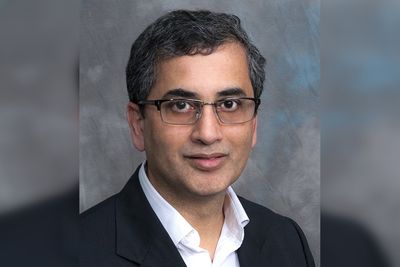matchmaking innovation
Q&A: Chevron's unique clean energy studio role in Houston entrepreneur community

Gautam Phanse of Chevron Technology Ventures answers questions about this unique program. Photo courtesy
A new program from Houston-based Chevron Technology Ventures is rethinking how best to commercialize research-based technology.
This spring, Chevron Studio announced its second cohort of its program that matches entrepreneurs with promising technologies coming out of universities and labs. The overall goal of the studio — a collaboration between Chevron and the National Renewable Energy Laboratory, or NREL — is to scale up and commercialize early-stage technologies that have the potential to impact the future of energy.
Once selected, there are three phases of the program. After the entrepreneur applications closed in March, the first step was matching the selected entrepreneurs with the inventors of the selected intellectual properties, which will occurs over three to four months. The next phase includes scaling up the product — something that will take one to two years, depending on the tech. The last step would be a trial or a pilot program that includes rolling out a minimum viable product at commercial scale at Chevron or an affiliate. The next cohort application period will open next month.
Gautam Phanse is the strategic relationship manager for Chevron Technology Ventures. He joins InnovationMap for a Q&A to explain more about the opportunity.
What types of technologies is Chevron looking to bring into commercialization through this program? How is the program different from existing accelerators/incubators/etc.?
GautamPhanse: Chevron Technology Ventures brings external innovation to Chevron. Key focus areas for CTV are industrial decarbonization, emerging mobility, energy decentralization, and the growing circular carbon economy. Chevron Studio is one of the tools to achieve this goal. The current focus areas for Chevron Studio are: carbon utilization, hydrogen and renewable energy, energy storage systems, and solutions for circular economy. These focus areas will be reviewed every year and additional areas could be brought into the mix.
The goal of Chevron Studio is to scale up and commercialize technology developed in the Universities and National Labs. We curate the intellectual property developed at universities and national labs and provide a platform to match entrepreneurs with the IP. The program provides seed funding and a pathway through incubation, pilot and field trials to scale up the technologies. The uniqueness of this program is its target and the breadth of its scope — all the way from incubation to field trials.
How does Chevron Technology Ventures and the National Renewable Energy Laboratory collaborate on this project? What role does each entity play?
GP: CTV has a long history of supporting innovation and the startup community. And over the years we’ve seen the consistent gaps and the struggles that the startup companies have in scaling up technologies. We also have a long history of working with national labs and universities and have seen the challenges in getting these technologies out of the labs. The idea for Chevron Studio grew out of these challenges.
NREL’s Innovation and Entrepreneurship Center manages Chevron Studio, working closing with entrepreneurs and guiding them through the program while leveraging capabilities at the lab and activating the IEC’s network of cleantech startups, investors, foundations, and industry partners.
What are you looking for from the entrepreneur applicants? Who should apply?
GP: We are looking for entrepreneurs who are seeking their next opportunity. They should have a passion in lower carbon solutions and the patience to work on early-stage technologies to see them through scale up and commercialization. Aspiring entrepreneurs with demonstrated passion are also welcome to apply. The entrepreneurs are expected to build a team, raise funds and grow the business providing competitive solutions to the industry.
Tell me about cohort 1. How did it go and what were the participants able to accomplish?
GP: We were really excited about the response we got from both the entrepreneur community and the universities and national labs. We had a strong pool of entrepreneurs and a great mix of IP and frankly had a tough time making the selection. The first cohort had four entrepreneurs in the initial discovery phase. Some of them have now graduated, and we will be announcing the participants in the next phase — for scaling up — shortly.
------
This conversation has been edited for brevity and clarity. This article originally ran on InnovationMap.